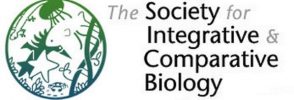Contents
Message from the Chair
Frances Bonier, Chair.DEE@sicb.org
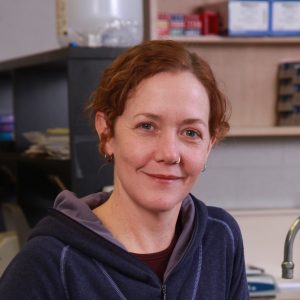
Hi everyone! This is my first message as the new Chair of DEE. I’m excited to be taking the reins from Cam Ghalambor, and want to thank him for his hard work for the division over the last two years, including guiding DEE through the unprecedented 2021 virtual meeting. I’d also like to thank a few other outgoing DEE officers and welcome new ones. Martha Muñoz has finished her term as Secretary and stepped right into the role of Program Officer-Elect – thank you Martha for giving so much of your time to helping DEE thrive! (And also, congratulations to Martha on her wonderful Gans Award Lecture in this year’s meeting.) I’d like to welcome new DEE Secretary Christine Miller and thank Sarah Diamond for her work in the role of Program Officer. A big thank you also to outgoing grad student representative Craig Marshall, and welcome to new postdoc representative Anusha Shankar, as well as Chair-elect Tonia Schwartz. We will be running an election this spring to select a new Secretary-elect, with a couple of great candidates lined up – Ryan Earley and Alex Gunderson. You can find their candidate statements in this newsletter. Later this summer, we will also have a special bylaws election that will include a question about adding a small dues fee for DEE membership. We’ve discussed the idea of adding a fee for division membership at our business meetings for a few years, and the idea seems to have fairly broad support. The main purpose of the added fee would be to support expanding our division social and networking event at the annual meeting (Beers & Brains), so all interested students and postdocs can participate.
I’ve been attending SICB meetings since I was a grad student – it’s my extended scientific family, and so I was sad not to be able to take a break from normal life and go somewhere warmer than my home in Kingston, Ontario to catch up with old friends and immerse in science for 5 days this past January. I’m sure many of us missed that in-person experience, but also appreciate the monumental efforts made by the SICB Executive Committee to make the virtual meeting a success. The opening week of live plenaries, symposia, and Best Student Presentation sessions preserved a lot of what I value most about SICB meetings, and the extended online programming gave me a great excuse to take a break from Zoom meetings, overseeing home-schooling, and many of the other new norms of pandemic life to hear some cool science. I hope you all enjoyed it as much as I did!
I want to congratulate this year’s winners of the Raymond B. Huey Awards for the DEE Best Student Presentations. Ray Huey was on my PhD committee, and he was incredibly influential in shaping who I am as a biologist, so I love having the opportunity to be involved with this award. The Huey Award sessions are always a highlight of the annual meeting for me, and this year was no exception. Colorado State University PhD student Alex Mauro won the Huey Award for his oral presentation, “How tradeoffs constrain evolvability at the range limit of the Trinidadian guppy.” Benedict University undergraduate student Jameel Moore won the Huey Award for his poster, “Interactive effects of ecologically relevant temperature regimes and p,p’-DDE exposure on patterns of gonadal gene expression in the American alligator (Alligator mississippiensis).” Both presentations really embodied SICB ideals – integrating across levels of organization to address important questions. Congrats Alex and Jameel! Thanks also to the many DEE members who helped out with judging talks and posters this year. I also strongly encourage student DEE members to submit their abstracts to be considered for next year’s Huey sessions. We are eager to showcase the amazing research being done by DEE’s student members!
Now’s the time to start thinking about exciting symposium ideas for the 2023 meeting. Do you have a new, integrative research direction that you think would benefit from bringing together some of the world’s experts and exciting upcoming biologists in the field? Organizing a symposium can be a great way to get all those experts in the same room, sharing diverse perspectives. Symposium presentations are also written up for publication in Integrative & Comparative Biology, so your exciting ideas can translate into meaningful contributions to the literature as well. If you have an idea for a symposium, please reach out to DEE Program Officer Martha Muñoz for guidance on how to develop your idea and submit a proposal.
We’re looking for new ways to stay in touch with division members in between meetings, and so if you’d like to keep up with what DEE is up to in between newsletters and join in discussions with other DEE members, I’d encourage you to join our Facebook group (SICB Division of Ecology and Evolution), follow us on Twitter (@SICB_DEE), and/or join our new Slack workspace (SICB Division of Ecology and Evolution). We’re also interested in involving student and postdoctoral DEE members in generating social media content – if you’d like to be involved in that initiative, you can get in touch with DEE Secretary Christine Miller or DEE Postdoctoral Rep Anusha Shankar. Thanks to Anusha and Christine for spearheading these efforts!
As vaccine programs roll out across the world, I’m feeling optimistic about the world getting back to some semblance of normal in the not-too-distant future. In the meantime, take care, stay safe, and fingers crossed we’re all able to get together in 2022 in Phoenix!
Message from the Program Officer
Sarah Diamond, DPO.DEE@sicb.org
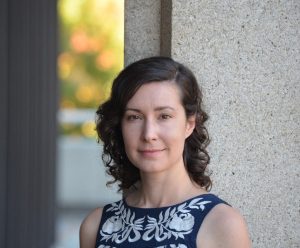
Hi Division of Ecology and Evolution Members,
Miraculously, we pulled off the remotely-delivered 2021 meeting, whew! It was great to see all the planning for this unprecedented SICB translate into such a fun and informative meeting. I missed seeing and interacting with all of you in person, but there was so much activity in the chat windows on the talks and the socials that it was almost hard to keep up with everything. And I mean that in the best possible sense. I hope you all got as much out of the meeting as I did, and were able to take advantage of some of the unique aspects of our remote meeting format (watching talks in pj’s while eating pizza anyone?!).
Remarkably, it was a pretty normal year in terms of the number of DEE-related regular session posters and talks. We also had 11 finalists who gave poster and talk presentations in the DEE Best Student Presentation award competition, the Huey Award. The presentations were all fantastic! Congratulations to Huey Award winner Alex Mauro (talk) and Jameel Moore (poster). Also many thanks to Christine Miller, the incoming DEE Secretary, for serving as session chair for this event.
The Beer and Brains social was a little different this year, but thanks to mastermind Craig Marshall, the DEE Student/Post-doc Rep (I’m still not sure how to do half the things he made happen with the breakout rooms in Zoom!), we were still able to catch up and talk science and job advice. Thanks to all of our mentors and participants for engaging in the social even this year.
The special symposium to honor George Gilchrist also involved many folks from DEE and was a great remembrance of George’s lasting impacts on physiological and evolutionary biology; his dedicated effort and impact at the National Science Foundation; and his pragmatic advice for early career researchers. Last, but not least, we had six DEE-related symposia in the 2021 meeting. These symposia covered a large range of topics that highlight the diversity of scientific questions and approaches encompassed by DEE. We had a couple of genomics-themed symposia across diverse groups from manakins to mollusks. We also had symposia on artificial light at night (ALAN) impacts on organisms; spatio-temporal variation in behavior; integrative biology of pigment organelles; and the biology of sticky substances.
DEE will again be sponsoring a number of symposia for the 2022 meeting (7, in fact) on topics including ecoimmunology, phenological plasticity, metabolic scaling and DNA metabarcoding, just to name a few. Keep an eye out to bookmark these great symposia on your 2022 SICB schedule next year.
Finally, the programming committee is back to symposium proposal review mode, so get those ideas together and let your DEE DPOs know what you’re thinking. I’m happy to discuss whether it’s at the idea stage or a full proposal that you’d like feedback on prior to submission. The proposal deadline will be in late summer 2021 for the January 2023 meeting.
Best wishes,
Sarah Diamond
Message from the Program Officer-Elect
Martha Muñoz, DPOElect.DEE@sicb.org
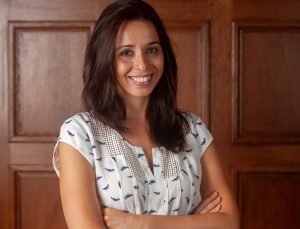
Hello, DEE! I’m delighted to be your new Program Officer-Elect for the division and am honored to continue the incredible programming that Sarah Diamond supports for the division. Before anything else, I want to thank Sarah for everything she’s been doing in DEE for the past two years. Thank you, Sarah!
While SICB 2021 could not be held in person, we were not lacking for access to great science. Symposia supported by DEE were central to the successful 2021 meeting. In particular, DEE co-sponsored six symposia that, together, spanned a correspondingly wide swath of ecological and evolutionary themes. A major theme from these supported symposia is the infusion of genomics perspectives into organismal studies. For example, DEE supported genomics-themed symposia on manakins and mollusks, with particular emphasis on how genomic perspectives can enhance our understanding of organismal evolution. Other major themes include organismal responses to artificial light at night, spatiotemporal variation in organismal behavior, the integrative biology of pigment organelles, and the biology of sticky substances. I hope that you had a chance to enjoy one or more of these symposia during the SICB meeting, and I would like to thank all the organizers and speakers for an exemplary job, and all under challenging and unusual circumstances. SICB is resilient!
Speaking of DEE-supported symposia, I wanted to also share some thoughts from our Special Session to honor the life and legacy of Dr. George Gilchrist. Former DEE Chair, Cam Ghalambor, and I were fortunate enough to co-organize the session, which resulted in a dozen presentations (some with multiple contributors) and drew in many more attendees. The scientific talks were all superb, and the warmth and sense of celebration was tangible. We wrapped up the session, in the spirit of George, with a toast to life. I would like to thank Beth Brainerd and Jake Socha (outgoing SICB President and PO, respectively) for helping us plan and execute this special session. Without their generosity and support it would not have been so successful. I want to also thank Burk Associates, who joined us all day on a Saturday to ensure that our session went off without any hitches. Likewise, I want to express my gratitude to all of our speakers/contributors. These are (with speakers underlined): Joel Kingsolver, Lauren Buckley, Sarah Diamond, Chris Muir, Seema Sheth, Amy Angert, Don Miles, Howard Snell, Heidi Snell, Paul Stone, Cam Ghalambor, Alisha Shah, Andrea Landeira-Dabarca, Amanda Rugenski, Andrea Encalada, Steve Thomas, Alex Flecker, LeRoy Poff, Alex Gunderson, Carol Lee, Kristi Montooth, Ibrahim El-Shesheny, Omera Matoo, John DeLong, Sam Scheiner, Doug Levey, Paco Moore, Simon Malcomber, Bill Zamer, Chris Schneider, Leslie Rissler, Brian Sidlauskas, Carlos Botero, J. Gordon Burleigh, Einat Hazkani-Covo, Jenny McGuire, Julie Meachen, Brian O’Meara, Trina Roberts, Juan Santos, Craig McClain, and Ray Huey. Thank you so much! We will continue to miss George, but it was heartening to see that his legacy is alive and strong in SICB. Long may it stay that way.
Although SICB 2021 only just wrapped up, it’s certainly not too early to look ahead! SICB 2022, which will be held in Phoenix, Arizona, will host seven DEE-supported symposia. These are:
- The deep and shallow history of aquatic life’s passages between marine and freshwater habitats (Organizers: Eric Schultz and Lisa Park-Boush)
- Ecoimmunology: what unconventional organisms tell us after two decades (Organizers: Vania Assis and Stefanny Monteiro)
- Lesser known transitions: organismal form and function across abiotic gradients (Organizers: Charlotte Easterling, Mary Kate O’Donnell, and Matthew Kolmann)
- Causal mechanisms of interspecific metabolic scaling patterns (Organizers: Jon Harrison and Meghan Duell)
- Phenological plasticity: From molecular mechanisms to ecological and evolutionary implications (Organizers: Cory Williams and Lise Aubry)
- DNA metabarcoding across disciplines: sequencing our way to greater understanding across scales of biological organization (Organizers: Anna Forsman, Michelle Gaither, and Anna Savage)
- Reciprocal illumination between ecology and biomechanics: evolution, integration, and constraint (Lara Ferry and Tim Higham)
In the spirit of DEE, these symposia cover such a wide range of organismal biology, ecology, and evolution. I hope you’re excited for all the excellent science to come! Thank you to all the organizers and the speakers, whose symposia will greatly enrich SICB 2022 and beyond.
Speaking of symposia, SICB 2023 is closer than you think! We are soliciting symposia proposals in anticipation of our planning meeting in October 2021. If you’re interested in organizing a symposium, send me an email! DEE wants to support cutting-edge science at conceptual and empirical vanguards. Symposia offer opportunities to connect among ideas, create emergent knowledge, and push fields forward. In addition, they’re great opportunities for collaboration, connection, and networking, perhaps especially for early career researchers. If the process feels intimidating or daunting, worry not! I’m here to help. I have experience in all the aspects of planning and execution and would happily guide you through any and all pressure points or issues. My job is to help DEE support the best science, so it is my honor to help our members prepare their symposia proposals. I would like to especially extend an invitation to our early career members and reiterate SICB’s message of equity and inclusion. We want our symposia to reflect our diverse membership. Please feel free to reach out at any time! I can be reached at my DEE PO email address, and also at martha.munoz@yale.edu.
Message from the Secretary
Christine Miller, Secretary.DEE@sicb.org
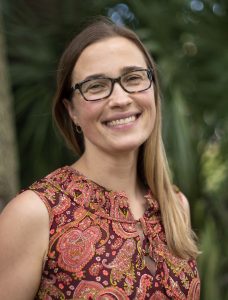
First, I’d like to express gratitude to our outgoing DEE Secretary, the Martha Muñoz. Martha has been a champion of DEE and contributes so much to the society. I’m glad that I will now get a chance to work with Martha side-by-side in her role as Program Officer.
Apply for our Huey Awards for best talk and poster: We had some incredible talks and posters as part of the DEE Best Student Paper/Poster competitions this year. A huge thank you to all the presenters. I always seek out these sessions because I know they will be riveting, and I was once again impressed this year. Please encourage your friends, students, and undergraduate researchers to look out for this opportunity when submitting work for SICB 2022. It would be fabulous to keep up this high level of accomplishment. The (very) hard part is picking the winners. A hearty congratulations this year to Alex Mauro and Jameel Moore.
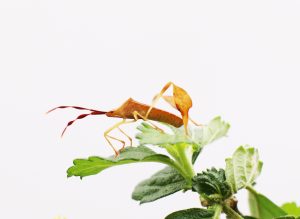
Would you like to be on DEE’s social media team? DEE is stepping up our engagement on social media! We are building a social media team and would love your help. Read more in DEE Postdoctoral Rep Anusha Shankar’s post below. I’d also love to hear from you if you have an announcement or opportunity to share on social media or the fall newsletter.
Let’s highlight our early-career members: We would like to highlight undergraduates, graduate students, and postdoctoral researchers in our Fall 2021 newsletter. Please send me nominations in these next few months so I can start preparing!
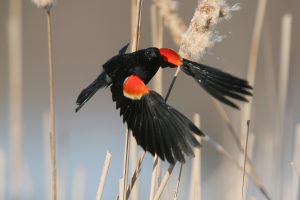
Photographs, paintings, and more: Art and science are an incredible pairing. We are looking for visual art inspired by ecology and evolution, and the process of doing science, for the Fall 2021 DEE newsletter. Would you like to share some of your work with the community? If so, I look forward to hearing from you.
Please vote in the upcoming SICB Election: All SICB members, including students, are eligible and encouraged to vote in the upcoming SICB election. In addition to candidates for Society-Wide positions, you will be able to vote on DEE Secretary Elect. You can read more below about the DEE Secretary-Elect candidates below; the SICB-wide newsletter contains candidate biographies for Society-wide positions.
Minutes from the SICB Division of Ecology and Evolution Business Meeting in January 2021 are available online.
Message from the Student/Postdoctoral Affairs Committee Representative
Anusha Shankar, anusha.shankar@cornell.edu
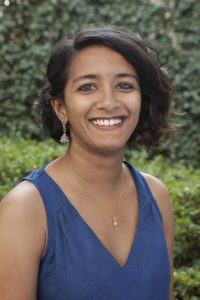
I am excited to be your new DEE graduate/postdoc representative for SICB 2022! I am a postdoc at the Cornell Lab of Ornithology, and I study avian physiology, and am embarking on a project to integrate gene expression and physiology to study metabolic states in hummingbirds. I’m Indian, and I love salsa dancing. I look forward to maybe meeting you all in person sometime soon! But until then, we would love to engage with you all throughout the year and facilitate your interactions and collaborations even outside of the meeting. To make that happen, I’d encourage you to join our Facebook group (SICB Division of Ecology and Evolution), follow us on Twitter (@SICB_DEE), and/or join our new Slack workspace (SICB Division of Ecology and Evolution). We would also love to post more content from student and postdoctoral DEE members on social media – if you’d like to be involved in that initiative, you can get in touch with me or DEE Secretary Christine Miller. And tag @SICB_DEE on twitter when you have a new paper out; we will re-tweet and help share your research! If you have any questions or are looking for additional information about DEE and ways that you can become more involved, please email me. I look forward to hearing from you so we can work together to make SICB 2022 rewarding, memorable, and fun!
Raymond B. Huey Best Student Presentation Awards
It’s our pleasure to announce the winners of the fifth annual Raymond B. Huey Best Student Presentation Awards:
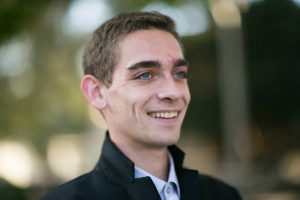
Best oral presentation, Alex Mauro, Colorado State University. How tradeoffs constrain evolvability at the range limit of the Trinidadian guppy.
Broadly, I study the evolutionary ecology of range limits. I study range limits to investigate the limits of the adaptive process because the better we understand these limitations, the better we can predict how organisms will respond to future change. During my dissertation, I have investigated how a trade-off between salinity tolerance and competition constrains Trinidadian Guppies to freshwater in Trinidad despite their ability to persist in brackish water in other parts of their range. Through a combination of field studies, breeding experiments, and physiological experiments in the lab, my collaborators and I have found strong evidence that the physiological network underpinning the trade-off is a reason why the trade-off serves as a barrier to both range expansion and niche expansion in guppies. I am currently finishing my PhD in the Ghlambor Lab at Colorado State University. For more information on this research, see my website (https://amaurobio.weebly.com/) or follow me on twitter (@evoevoalex).
Best poster presentation, Jameel Moore, Benedict College. Interactive effects of ecologically relevant temperature regimes and p,p’-DDE exposure on patterns of gonadal gene expression in the American alligator (Alligator mississippiensis).
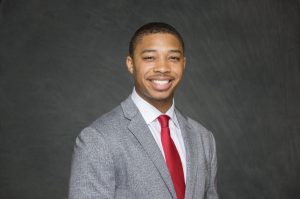
Jameel Moore is a senior undergraduate at Benedict College majoring in biology with aspirations of becoming a Pediatric Surgeon. He is a Founder Scholar recipient and a proud member of Kappa Alpha Psi. He is also the Founder and President of the Minority Association of Pre-medical Students chapter at Benedict College. He encompasses himself in leadership, academic excellence and community service. He has served as a research technician for the United States Department of Energy and NASA South Carolina Grant Consortium and a few other notable institutions. He also serves as a change agent completing over 100 hours of mission and service trips in Port-au-prince Haiti, United Arab of Emirates and South Africa.
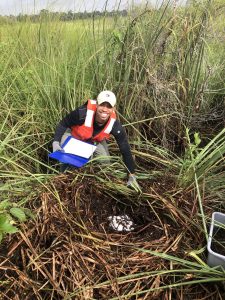
In the face of a rapidly changing global climate, it is important to understand how thermal fluctuations and contaminant exposure interact to influence wildlife health. At the U.S Department of Energy Savannah River Site Ecology Lab I studied the effects that the environmental contaminants p,p. DDE has on embryonic development in the American alligator at different temperature fluctuations. In particular, species with temperature-dependent sex determination may be especially vulnerable to these man-made influences due to their sensitivity to the environment during development. Alligators are among those species with temperature-dependent sex determination and play an important role in maintaining ecosystem balance. Sitting at the top of the food chain, alligators are apex predators and help keep other animal populations in balance. My role was to preform dissections and extract DNA and RNA from organs that contributed to sex phenotypes to those that include the gonadal adrenomesenephro complex, cliteropenis and the brain etc. In addition, I was to conduct data analysis during alligator nest captures in the swamps and tall grass of South Carolina and Florida. In summary, this project provided a larger understanding of how changes in temperature regimes associated with climate change and exposure to environmental contaminants are affecting alligators and their other important ecological implications.
Congratulations to these outstanding students and to all of the finalists! It is not too early to consider applying for this prestigious award for the 2022 meeting in Phoenix. You can find the application guidelines here.
Candidates for Secretary-Elect
Alex R. Gunderson
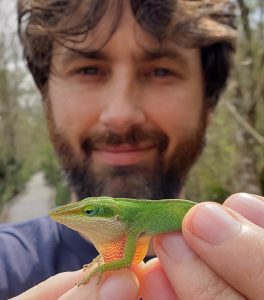
Current Position: Assistant Professor, Department of Ecology and Evolutionary Biology, Tulane University
Education: BS, Minnesota State University. MS, The College of William and Mary. PhD, Duke University
SICB Activities: Member for 12 years (2009)
Other Memberships: Society for the Study of Evolution
Research Interests: Physiological and evolutionary ecology
Goals Statement : I began attending SICB early in graduate school, and it immediately became the meeting at which I felt most at home. This was partly because of the incredible science, and partly because I felt the society placed such a clear emphasis on providing space to young scientists. My primary goal as Secretary of DEE will be to continue emphasizing the important work of mentoring the next generation of EE researchers, and ensuring that we do so in a way that is inclusive and equitable.
Ryan L. Earley
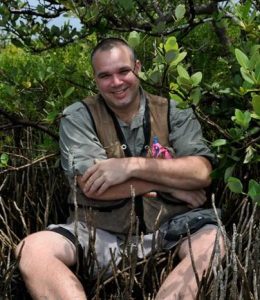
Current Position: Associate Professor of Biological Sciences, University of Alabama
Education: B.S. Syracuse University (1997), Ph.D. University of Louisville (2002); Postdoc, Center for Behavioral Neuroscience & Georgia State University (2006)
Professional Experience: Assistant Professor, CSU-Fresno (2006-2008); Assistant – Associate Professor, University of Alabama (2008-present)
SICB Activities: Member for 15 years (2006); Associate Editor of Integrative & Comparative Biology (2015-present); Student Support Committee member (2012-15) and Chair (2015-18); Developed Student Grant (GIAR/FGST) Workshop; DEE Beers & Brains Mixer participant (2018); Student presentation judge for DEE, DCE, DAB, and DCPB.
Other Memberships: Society for the Study of Evolution; Pan-American Society for Evolutionary Developmental Biology; Sigma Xi.
Research Interests: Evolution of behavioral and endocrine stress responses; neuroendocrine mechanisms underlying social behavior and sexual plasticity; evolution of sex change; evolutionary consequences of endocrine disruption; physiological tolerance to extreme environments; fish geek.
Statement of Goals: I am honored to have been nominated for DEE’s Secretary-elect position. After attending my first SICB conference, I was hooked. I could randomly waltz into any meeting session and be mesmerized by creative science, which really resonated with me. I feel that the diverse scholarly approaches to fundamental questions in biology is a unique strength, if not the hallmark, of our society. Our brilliant students experience the power of integration and interdisciplinary collaboration and are immersed in an environment where joy is derived from discovery and from going out on a limb (or fin) to satisfy intellectual curiosities. As an Associate Editor of ICB, I have become intimately familiar with the research breadth of our society. As Student Support Committee Chair, I felt the future pulse of our Society and can confidently say that, with continued investment in our student members, SICB will remain at the forefront of innovation in biology. I have great respect and admiration for the research being conducted by investigators in each of our Divisions, and I think the most thrilling part of science is attempting to put the biological jigsaw together. I am thus committed to fostering strong communication among DEE’s diverse members and to building upon existing connections with other Divisions and with our journal editorial boards. I look forward to showcasing DEE’s accomplishments in our newsletters and learning more about the intricacies of our Society in my capacity as an officer. I am excited to serve DEE and await the chance to see you all at our next meeting.
